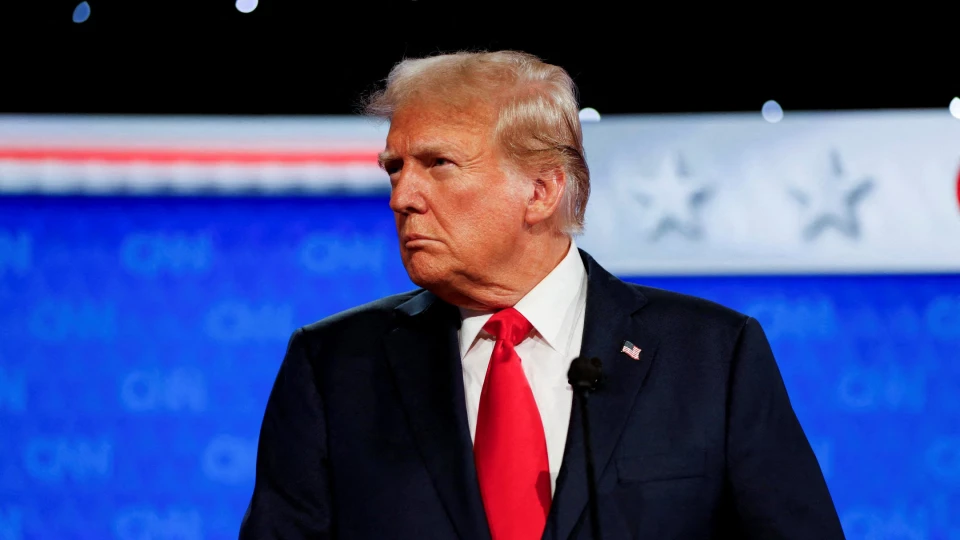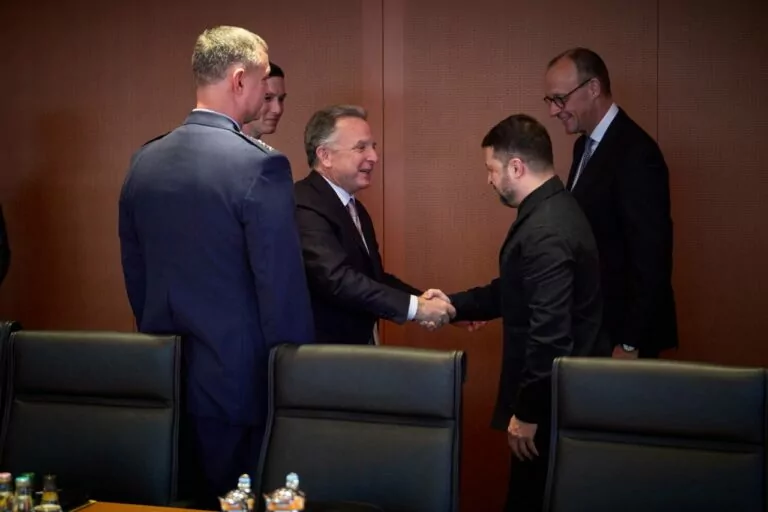Brian Dooley is a Senior Advisor at Washington-based NGO Human Rights First and Honorary Professor of Practice at Queen’s University, Belfast. He specializes in working with human rights activists in war and other conflict zones and is a regular visitor to Kharkiv.
USA, WASHINGTON, D.C. — This Wednesday, April 30, marks 100 days since Donald Trump became American president for the second time.
For almost a century, the first 100 days of new U.S. presidents have been a sort of checkpoint to assess how they’ve started. President Franklin Roosevelt passed an intense amount of legislation in a 100-day burst at the start of his presidency in 1933, and the marker has since become an important, if symbolic, point of judgment.
Trump has certainly made a fast start, starting a global tariff war, cutting U.S. overseas government funding, threatening to take over Greenland, and attacking all sort of government departments. But he hasn’t managed to keep his promise to end the war on Ukraine in a day.
Seems it was trickier than he thought.
Between March 2023 and October 2024 (the month he won the election), he claimed at least 53 times that he would end the war either within 24 hours of becoming president, or even before he was official sworn in.
Now he says he didn’t mean it literally: “I said that figuratively, …as an exaggeration… it was said in jest.”
But here in Washington, not having found a way to end the war in his first 100 days is seen as a failure after so much boasting. In July last year, when he was nominated for president by the, we examined the tensions within the party over Ukraine, noting that while some Republicans seemed okay with being friendly to Russia, others were still backing Ukraine in the war.
But it doesn’t look like internal Republican divisions are the problem. “There are a few Republican members of Congress still publicly supporting Ukraine, but the rest have been bullied into silence,” one Senate aide and foreign policy expert told me. “There isn’t any real opposition to Trump from his own party over Ukraine.”
Instead, it seems the reality of dealing with President Vladimir Putin is what’s prevented a deal from being struck.
According to a poll this week, more than half of Americans (including one in five Republicans) now say that Trump is “too closely aligned” with Russia, although nearly half also said they support Trump’s plan of “conditioning U.S. military support for Ukraine on the U.S. getting a share of Ukraine’s mineral wealth.”
Of course, the war looks different from Washington than is does in Kharkiv. Armchair experts in the U.S. and Europe offer unhelpful suggestions while Ukrainian cities get bombed and civilians killed.
Trump’s tactics of publicly attacking both Ukraine and Russia, plus various senior level meetings involving combinations of American, Ukrainian, European and Russian officials, haven’t been able to make any breakthrough. This makes Trump look weak, undermining his claims to being an expert dealmaker.
The war was never going to be ended in 24 hours. It’s a complicated process to end the invasion, and maybe even more complicated to ensure any agreement sticks.
Whenever the outlines of a real peace deal begin to emerge, they should not trade away human rights for a political fix.
As Tetiana Pechonchyk of Ukrainian human rights NGO ZMINA and I argue in the New York Law Journal, the prosecution of war crimes suspects mustn’t be surrounded in any deal. Nor should the International Criminal Court case against Putin and other Russian officials be dropped, Ukrainians children abducted into Russia have to be returned, and adults taken prisoner should be too.
There are many other rights that have to be protected in any peace deal, and we know, too, that involving women human rights activists in negotiations is a good idea. Evidence from all over the world shows that women’s participation increases the probability of a peace agreement lasting at least two years by 20%, and by 35%, the probability of a peace agreement lasting 15 years.
Getting a deal that lasts is vital. Trump couldn’t make one in his first 100 days, and this will rightly be seen as a failure. Now what matters is what happens in the next 100 days.
Opinion pieces reflect the thoughts of their authors and do not reflect Gwara Media’s views.




